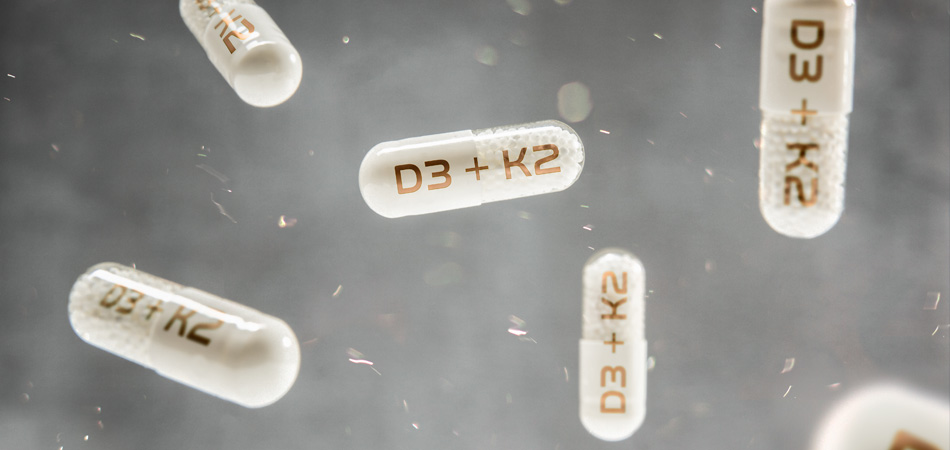- Your cart is empty
- Continue shopping

The importance of vitamin D for bone health has been known for years.
In vitamin D deficiency, calcium absorption is insufficient and cannot satisfy the body’s needs. Vitamin D supplements prevents calcium excretion and keeps bones healthy by increasing the absorption of calcium.
In order to increase this effect, different results have been obtained in experimental and clinical studies on the use of K2 with vitamin D. Therefore, there is not enough recommendation for the use of both together promote and protect bone health.
Vitamin D has been recommended to be taken with K2 to prevent calcification in soft tissues in recent months.
Taking extremely high doses of vitamin D3 for long periods may lead serious problems.
There is no scientific recommendation on the use of vitamin K2 together with vitamin D to avoid side effects or to be more beneficial.
Disgussed subject is the use of vitamin D together with K2 for bone and cardiovascular health.
Vitamin K2 deficiency is associated with vascular calcification (calcification of the vessel walls) and osteoporosis.
Vitamin K-dependent matrix Gla protein (MGP) has been suggested to play a role in the inhibition of soft-tissue calcification.
There is no consensus on the use of vitamin K supplements to prevent osteoporosis and vascular calcification, and further studies are needed in this regard.
There are two forms of Vitamin K2: (1) Menaquinone-4 (MK-4) and (2) Menaquinone-7 (MK-7). MK-4 is found in high levels in animal foods such as milk, cheese, eggs, and MK-7 is in fermented foods and a food called natto consumed in Japan.
The recommended adequate intake for vitamin K depends on gender. Women should consume 90 micrograms (mcg) a day, and men should have 120 mcg. Vitamin K deficiency can be seen in people who use antibiotics for a long time, who use drugs that disrupt fat absorption, and who have severe intestinal and liver disease.

